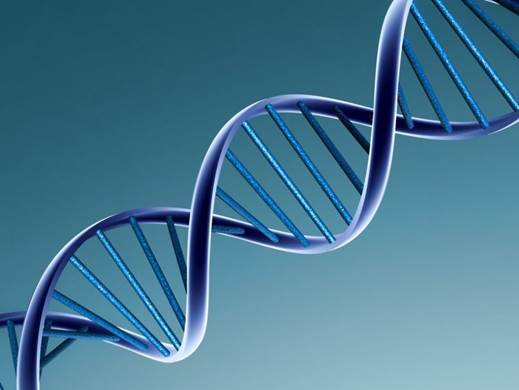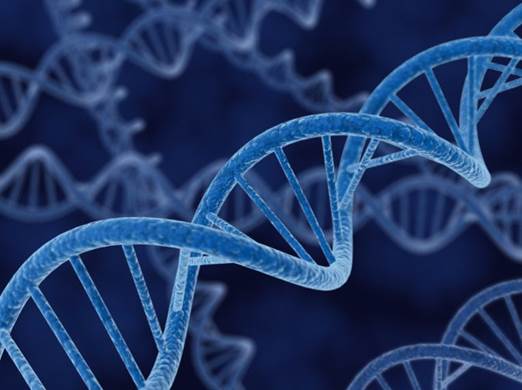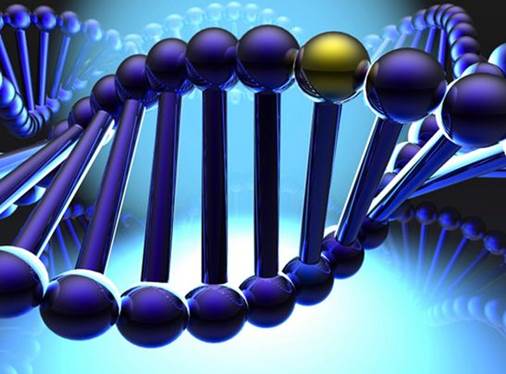If modern science has taught us anything,
it's how powerful genes can be. Their complicated codes inform everything from
our intelligence and height to our health future. But emerging research in an
exciting field called epigenetics is pointing to a game-changing fact: through
certain behaviors, we might be able to redirect our biological destiny and
sidestep disease
Parents pass many things down to their
children: second-hand cars, heirloom furniture, antique jewelry (well, if
you're really lucky)... Some of these things we accept with open arms. Other
things, such as limp hair, acne-prone skin, a persistent pear shape or `sturdy'
legs, not so much. Sadly, we have little choice in what we inherit from them.
Or do we?

If
modern science has taught us anything, it's how powerful genes can be.
Your physical make-up is pretty much
determined by your parents' DNA, the double helix that spells out who you are.
In other words, your genes are your destiny. If your mother's side of the
family has a tendency towards bubble butts and chunky thighs, then your lower
half is fated to stay on the larger side; ditto if your father's lineage is
riddled with heart disease, then your ticker's bound to stop working early.
Right?
Well, not necessarily. Recent scientific
breakthroughs show that you may have some influence over how your genes work
after all. Turns out that while traits such as eye color, height, and bone
structure aren't changeable, others, including disease risk and life span,
aren't always set in stone. The food we eat, the chemicals we ingest and the
stress we experience not only control our short-term health but can also modify
the way our DNA behaves, and then potentially transfer those tweaks to our
children and grandchildren.
It all hinges on a complex chemical code
called the epigenome. Picture it as a super-fine jumper wrapped around your DNA
with the power to physically switch genes on or off. Epigenetics, the study of
that coating, shows that most genes appear to be more of a predisposition than
a predetermined fate; and while you can't change your actual DNA, you can
control (up to a point) the way it acts.

Picture
it as a super-fine jumper wrapped around your DNA with the power to physically
switch genes on or off.
"We tend to talk about DNA as if it is
a template," says Professor Nessa Carey, author of The Epigenetics
Revolution. "But our DNA isn't really like that. It's actually more like a
script. Just as in the theatre, the same script can be used to create different
productions - think of the various performances of Romeo and Juliet, say so in
the same way, your DNA script can lead to different outcomes."
Genes, interrupted
Picture two side-by-side laptops, one
running Word and one running Excel. Same machine, different programs. "I
think of DNA as the hardware of our cells, the physical machine," says Dr.
Randy Jirtle, director of the Epigenetics and Imprinting Laboratory at Duke
University. "Epigenome is the software, the programming that tells DNA
what to do." So just because two people - even identical twins have
basically the same genes doesn't mean their bodies will behave in the same way.
Ever wondered why?
Well, the idea of epigenetics pretty much
nullifies that old nature-versus-nurture debate. Your genes, like your
computer, are powerless without your epigenetic software development,
Epigenomes are susceptible to directing them when, where, and how to work. And,
as researchers figure out exactly which actions could switch genes on and off,
women everywhere have the potential to be a lot healthier. "There's
nothing you can do about your DNA, but you can influence the way it functions
by changing your lifestyle," says Ajay Goel, director of Epigenetics and
Cancer Prevention at Baylor Research Institute. How empowering is that?

"There's
nothing you can do about your DNA, but you can influence the way it functions
by changing your lifestyle,"
For example, new research shows that even
if you have a family history of age-related cancers, eating certain foods
(we're talking about the likes of broccoli, garlic and sprouts here) can
essentially instruct your epigenome to shut off those cancer- promoting genes.
A further US study found that when mice exercised regularly, some of their
cells that could have turned into fat were more likely to be turned into bone.
What can you learn from this? That maternal dynasty of muffin tops could
actually end with your mum.
"This science is revolutionary because
it's changing the way we've always thought about disease," says
integrative physician Dr. Frank Lipman. Just the idea that there's more to
inheritance than genes alone, that our environment and lifestyles affect how
our genes work, that the choices we make today may leave an enduring imprint
not only on our own bodies but also on our children's, is, well, staggering.